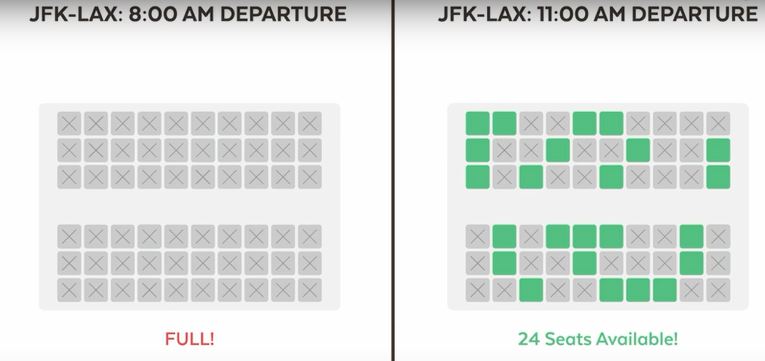One of the most hotly anticipated education sessions at APEX TECH events over the past few years has always been the ‘Focus on Innovation’ session where APEX invites entrepreneurs from techie startups to showcase their cool, forward-thinking wares for the crowd. And this year’s presentations did not disappoint.
Featuring spirited, eight-minute presentations on innovations like the mobile app Grab which is hoping to revolutionize the way passengers shop for food, retail, and services at airports around the globe; and Mozio, which launched in 2012 with a goal of enabling bookings across all modes of transportation for passengers on the go, the session opened with an engaging and very funny presentation from Volantio CEO Azim Barodawala, who used plastic Easter eggs to demonstrate how Volantio’s YieldBoost software can help airlines “fill empty seats, increase revenues, and decrease the costs of oversell and disruptions”.
But in a day filled with much talk of digital disruptors, the presentations by interactive email company SeatAssignMate (SAM) CEO Shi Li — whose firm helps airlines provide passengers dynamic, interactive, and highly-personalized bespoke shopping experiences directly in their confirmation email — and 30SecondsToFly’s Co-Founder and CEO Felicia Schneiderhan — whose Claire is an A.I. powered travel assistant that offers personalized travel management solutions for small-to-medium-sized businesses and their employees via texts through Slack, Facebook and SMS — proved to be the most prescient.
For while both solutions offered up unparalleled personalization options for travelers, they also pointed to the fact that personalization itself might be the newest digital disruptor on the horizon moving forward.
“Right now, for the first time, we have the ability to automate personalization without having a human behind it,” Schneiderhan confessed to RGN at a mixer immediately following the session. “Machine learning in that regard has a very unique advantage in that it builds that personalization once, it’s saved in the cloud and [kept] there, that is the idea of machine intelligence personalization. And I think before it was almost impossible to use that kind of technology because we were missing the processing power, we were missing the data storage, but with the huge technological advances in these fields, we can now apply this technology cheaply to travel.”
She added:
With Claire most of our transactions are completely automated, so there is no human interaction involved at all [and] the user experience as an entirety is completely differently designed. You talk to Claire via chat … so, you’re not putting information into a static input form on Expedia or Priceline or Concur, but you’re interacting with a tool, so, dependent on what you [give] it as information it asks you a question and this question is different depending on the scenario. So, the tool really assesses your contextual situation based on not only what you like based on past interactions, what the tool already learned, but also what [your] specific situation is at that given point in time. The tool can assess that and give you the personalized options and … assure that all of the travel options that are being shown are within your company’s policy.
Already proving to he a huge hit with users — especially younger, tech-savvy business travelers who appreciate Claire’s casual, “member of the team” vibe —Schneiderhan says personalization of this sort is definitely having a moment right now.
“It’s very interesting because personalization disrupts the entire travel industry .. for example, with Claire, all of the sudden the OTA (online travel agencies) are not able to offer that personalization because they don’t have the back and forth. You put your information in, you click send and its gone, whereas with Claire it goes back and forth until Claire has all the information she needs in order to personalize the trip,” explains Schneiderhan.
“For the first time we can use the degree of automation that you find online and put it together with the service component of a human [and] that’s how personalization is going to disrupt everything that’s static and mass-market and fully-automated right now.”
Related Articles:










